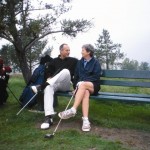My heart aches, and a drowsy numbness pains
My sense, as though of hemlock I had drunk,
Or emptied some dull opiate to the drains,
One minute past, and lethe wards had sunk, (Keats – Ode to a Nightingale)
This is the stuff of those O level exams in Eng Lit which induced its own drowsy numbness on hot summer days. We were supposed to be infused with the magic but most thoughts were of getting out into the sunshine and having fun. Even so when reading it aloud on cold winter days there was a liking of the smooth flow of words, the meter and the rhyme. The latter made it easier to remember and fitted the notion of what poetry is all about.
So I lie in the old dentist’s chair,
And I gaze up his nose in despair,
And his drill it do whine
In these molars of mine.
‘Two amalgam,’ he’ll say, ‘for in there.’ (Pam Ayres – Oh I wish I’d looked after me teeth)
What fun we would have had if that had been part of the O level exam. It certainly rhymes and is easy to remember but my old English teacher would have had apoplexy had it appeared in class. Yet both examples are what I see as falling into the general realm of poetry. From the esoteric to the plain, laughingly funny.
They are easily recognisable as ‘proper’ poetry, whereas so much of what I see today, and called poetry, is nothing of the sort. More like mangled prose set down in a style purporting to be poetry. Where did it all come from?
We have free verse poetry with no rules. So who decided that this was poetry? And if there are no rules what on earth is the point? Does it make all of us poets? Can I write a lot of words down that have no meaning, no sense, no flow, no poetry?
What then is poetry? My dictionary does not help – the essential quality of a poem; the art of the poet; poetical composition. Rhyme (which has far more to its definition) can be head-rhyme or eye-rhyme or rich rhyme or identical rhyme, even internal rhyme, all such as to harmonise and here I feel on safer ground.
Harmony brings us to music so there has to be something satisfying in the sounds. Now we can all hear forms of music that have no harmony, quite deliberately, but that is not what I feel as being akin to poetry. For me both poetry and music have that richness of sound; that special blend of satisfaction and enjoyment; an end unto itself.
So somebody, somewhere decided that poetry does not have to rhyme and worse still may be any conglomeration of words they fancy and they may call it a poem. And yet a poem can be anything supremely harmonious and satisfying – but to whom? This free verse can never meet another form that satisfies, one that is exceedingly beautiful, harmonious, rhythmical and the one that fulfils the ideal for me – poetry in motion.




